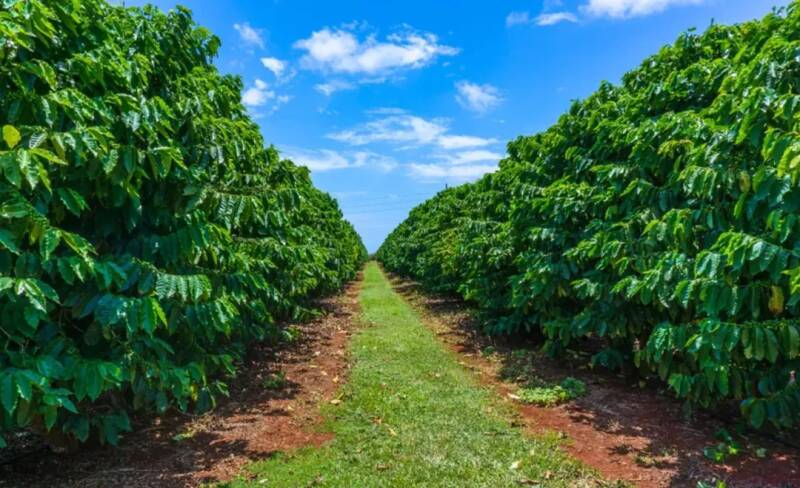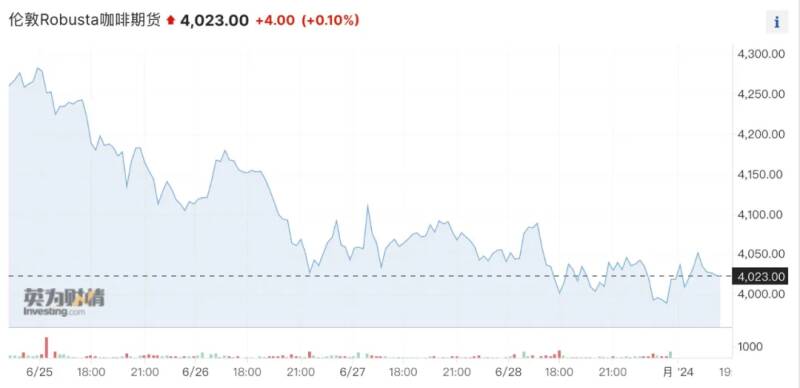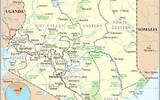Brazilian coffee production falls short of expectations! Robusta prices will rise
In recent times, Brazil's coffee producing areas are still affected by the El Niño phenomenon and have been in relatively dry weather, which is conducive to local coffee harvesting. However, according to Safras&Mercado, harvesting is currently accelerating. As of June 25, Brazil has harvested 50% of its coffee production, higher than the average harvest progress of 45% in the same period in the past five years.
Among them, Arabica coffee harvest progress is 35%, and Robusta coffee harvest progress is 62%, both higher than the harvest progress in the same period in the past five years. Although the harvest progress is rapid, judging from the current actual harvest, the performance of the production area is not as good as expected, mainly because the actual output is lower than previous market expectations, and secondly, the problem of small coffee beans.
Brazilian weather forecasting agency Somar Meteorologia reported that some Brazilian states had rainfall, but the rainfall was limited. However, the weather in some states is dry, especially Minas Gerais, which has had no rain for three consecutive weeks and is expected to remain dry for some time to come.

But at the same time, there is also concern that drier weather conditions than before will have an adverse impact on Brazil's coffee crops. The hot and dry environment will be conducive to the growth and spread of some pests, affecting yield and quality, thus accelerating the harvest progress. However, a dry climate is conducive to the processing of coffee cherries, which helps improve the quality of coffee beans through good drying, processing and storage procedures.
In terms of Robusta coffee, judging from the harvest situation, the actual output is significantly lower than previous market expectations. The total output is expected to decrease by about 8%-14%. After all, some Robusta coffee producing areas have reported a 20% reduction in production.
At present, Robusta's futures prices are basically maintained at around US$4000/ton, due to the impact of Robusta's production reduction due to the dry weather in Vietnam. If Brazil's Robusta also reduces production, Robusta's futures prices will continue to rise in the future. The Robusta Coffee Spot Price Index closed at 1,195.94 reais/bag (60 kilograms per bag), an increase of 4.07% from the end of May.

However, after experiencing high temperatures, Brazil is set to experience a strong cold snap, and temperatures in São Paulo and Rio de Janeiro may set cold records. According to data from the Meteorological Administration, parts of the states of Greater South, Santa Catarina and Parana will be the most severely affected, with temperatures in some areas likely as low as-8 C, while temperatures in other areas may be below normal, and such powerful cold air masses were common before passing through the central part of the country. Moreover, it may have a certain impact on some coffee producing areas.
Therefore, preliminary evaluations by many experts earlier estimated that Brazil's total output was about 68.5 million bags. However, as the harvest progresses, due to the small shape of the coffee beans, uneven maturity, and strong cold currents, Brazil's total coffee production is expected to be reduced to 67 million bags.
Important Notice :
前街咖啡 FrontStreet Coffee has moved to new addredd:
FrontStreet Coffee Address: 315,Donghua East Road,GuangZhou
Tel:020 38364473
- Prev

Kenya| Introduction to Kirin Jaka, a coffee producing area
African coffee has a high reputation in the global coffee market, because the African country Ethiopia is recognized as the birthplace of coffee. In addition, there are many outstanding coffee-producing countries, such as Ethiopia's neighbor Kenya. Although Kenya is adjacent to Ethiopia, the birthplace of coffee, Kenya's coffee industry
- Next

Sitting for a long time reduces your life? New research points out that drinking coffee can offset the harm!!
▲ Click to pay attention| Daily Boutique Coffee Culture Magazine Coffee Workshop Many people know that sitting for a long time can hurt the health, but in daily work and life, sitting for a long time is inevitable. It can be said to be a "common problem" for most modern people. Some people The sedentary time every day even exceeds 8 to 10 hours. According to WHO (
Related
- What grade does Jamaica Blue Mountain No. 1 coffee belong to and how to drink it better? What is the highest grade of Blue Mountain coffee for coffee aristocrats?
- What are the flavor characteristics of the world-famous coffee Blue Mountain No. 1 Golden Mantelin? What are the characteristics of deep-roasted bitter coffee?
- Can I make coffee a second time in an Italian hand-brewed mocha pot? Why can't coffee be brewed several times like tea leaves?
- Hand-brewed coffee flows with a knife and a tornado. How to brew it? What is the proportion of grinding water and water temperature divided into?
- What is the difference between Indonesian Sumatra Mantinin coffee and gold Mantinin? How to distinguish between real and fake golden Mantelin coffee?
- What does bypass mean in coffee? Why can hand-brewed coffee and water make it better?
- Unexpected! Ruixing Telunsu lattes use a smoothie machine to foam milk?!
- % Arabia's first store in Henan opens into the village?! Netizen: Thought it was P's
- Does an authentic standard mocha coffee recipe use chocolate sauce or powder? Mocha Latte/Dirty Coffee/Salty Mocha Coffee Recipe Share!
- What is the difference between Vietnam egg coffee and Norway egg coffee? Hand-brewed single product coffee filter paper filter cloth filter flat solution!

